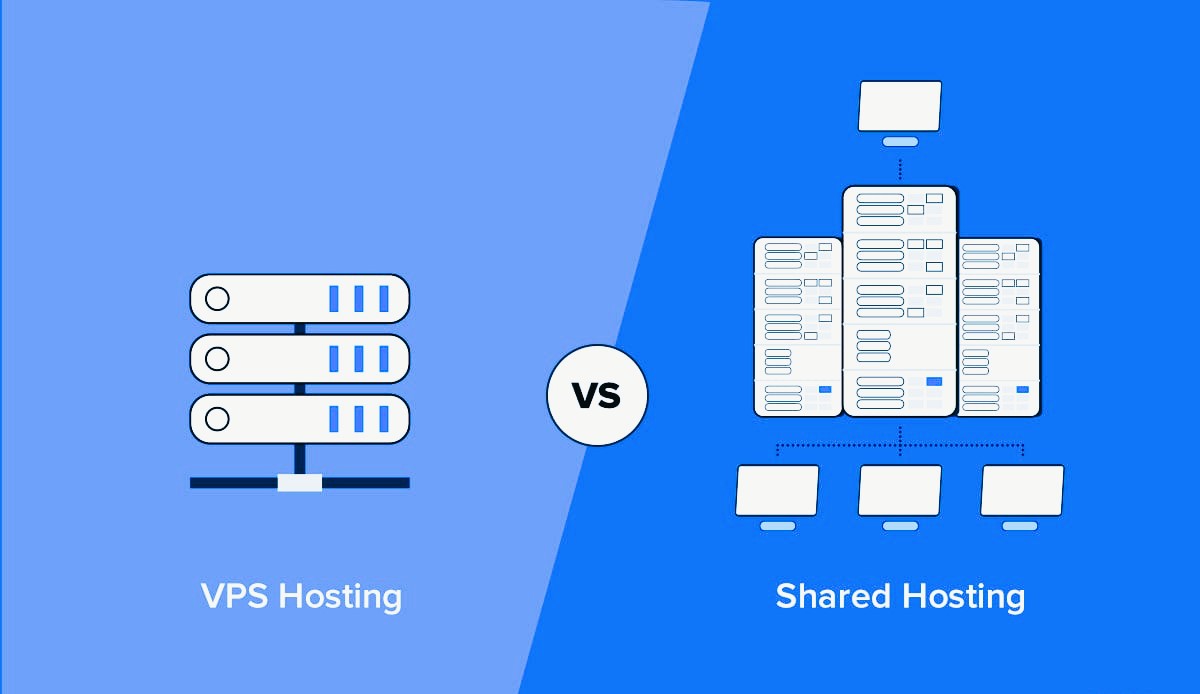Selecting the right hosting type is pivotal for your website’s performance, security, and scalability. Shared, VPS (Virtual Private Server), and dedicated hosting are the three primary types, each with distinct advantages and best-use scenarios. This article will help you understand these options and decide which is best for your site.
1. Shared Hosting: Ideal for Beginners and Small Websites
Shared hosting is where multiple websites are hosted on a single server, sharing resources like bandwidth and storage. It’s the most cost-effective option and is best suited for small websites, personal blogs, or businesses just starting online.
- Advantages:
- Cost-Effective: Due to resource sharing, it’s the most affordable hosting.
- User-Friendly: Providers often include cPanel and other tools for easy site management.
- No Technical Maintenance: The host handles server maintenance and technical issues.
- Limitations:
- Limited Resources: Shared resources can lead to slower website performance, especially if other sites on the server have high traffic.
- Security Concerns: Shared environments are generally less secure than VPS or dedicated hosting.
2. VPS Hosting: A Middle Ground for Growing Sites

VPS hosting splits a single server into multiple virtual servers. Each virtual server operates independently, providing more control and resources than shared hosting.
- Advantages:
- Dedicated Resources: You get a dedicated portion of server resources, improving performance.
- Scalability: Easily scale resources as your site grows.
- Cost-Effective: More affordable than dedicated hosting, but offers many similar benefits.
- Limitations:
- More Expensive than Shared Hosting: Not ideal for those with a tight budget.
- Requires Technical Knowledge: Managing a VPS can require more technical expertise.
3. Dedicated Hosting: Maximum Control and Performance
With dedicated hosting, you rent an entire server. This option is best for large businesses, e-commerce sites, and high-traffic websites.
- Advantages:
- Full Control: Full root access allows complete control over the server.
- High Performance: Dedicated resources ensure top-notch performance, even under high traffic.
- Enhanced Security: Since you’re not sharing the server, it’s more secure.
- Limitations:
- Costly: It’s the most expensive hosting type.
- Requires Technical Expertise: Requires knowledge to manage and maintain the server.
Choosing the Right Option for Your Site

- Assess Your Needs: Consider your website’s traffic, size, and specific needs. Shared hosting is adequate for small sites with low traffic. VPS is suitable for medium-sized businesses or websites with moderate traffic. Dedicated hosting is ideal for large businesses with high traffic and specific resource needs.
- Budget Considerations: Shared hosting is the most budget-friendly, while dedicated hosting is the most expensive. VPS offers a good middle ground. Read our article about Basic Security Features.
- Technical Expertise: If you’re not technically savvy, shared hosting might be more suitable. With VPS and dedicated hosting, you can opt for managed services if you’re not comfortable managing the server yourself.
Conclusion
Choosing between shared, VPS, and dedicated hosting depends on your website’s size, traffic, budget, and your technical expertise. Shared hosting is great for starters, VPS for growing sites requiring more resources and control, and dedicated hosting for those needing top performance and security. It’s essential to evaluate your current needs and future growth to make the right decision. Remember, the right hosting can significantly impact your website’s success, so choose wisely.

